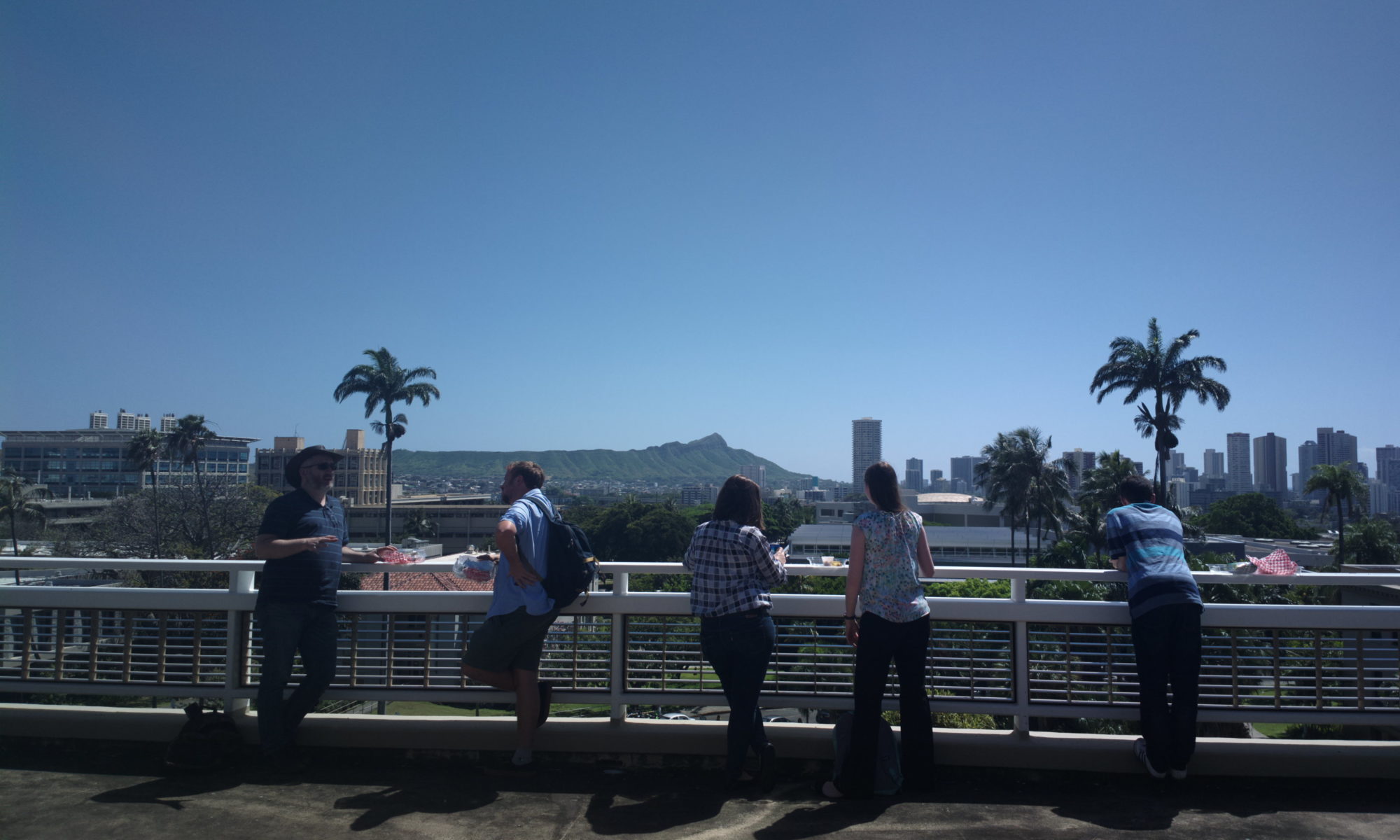All times are Central European Standard Time (GMT +1).
The proceedings of the ComputEL-7 workshop can be found here.
March 21
| 9:30-10:00 | |||
| 10:00-10:30 | |||
| 10:00-10:15 | A Finite State Model for the Morphological Analysis of Eyak | Olivia Waring and Gary Holton | |
| 10:15-10:30 | Akha, Dara-ang, Karen, Khamu, Mlabri and Urak Lawoi' language minorities' subjective perception of their languages and the outlook for development of digital tools | Joanna Dolinska, Shekhar Nayak and Sumittra Suraratdecha | Recorded presentation |
| 10:30-11:00 | |||
| 11:00-12:30 | |||
| 11:00-11:30 | T is for Treu, but how do you pronounce that? Using C-LARA to create phonetic texts for Kanak languages | Pauline Welby, Fabrice Wacalie, and Manny Rayner | Recorded presentation |
| 11:30-12:00 | End-to-End Speech Recognition for Endangered Languages of Nepal | Marieke Meelen, Alexander O'Neill and Rolando Coto-Solano | Recorded presentation |
| 12:00-12:30 | MunTTS: A Text-to-Speech System for Mundari | Varun Gumma, Rishav Hada, Aditya Yadavalli, Pamir Gogoi, Ishani Mondal, Vivek Seshadri and Kalika Bali | Recorded presentation |
| 12:30-14:00 | |||
| 14:00-15:30 | |||
| 14:00-14:30 | Fitting a Square Peg into a Round Hole: Creating a UniMorph dataset of Kanien'kéha Verbs | Anna Kazantseva, Akwiratékha Martin, Karin Michelson and Jean-Pierre Koenig | Recorded presentation |
| 14:30-15:00 | Looking within the self: Investigating the Impact of Data Augmentation with Self-training on Automatic Speech Recognition for Hupa | Nitin Venkateswaran and Zoey Liu | |
| 15:00-15:30 | Language Root: Empowering Indigenous Communities through a Community-Centric Approach to Language Revitalization via an Innovative Mobile Application | Stephanie Witkowski | Recorded presentation |
| 15:30-16:00 | |||
| 16:00-17:30 | |||
| 16:00-16:20 | Data-mining and Extraction: the gold rush of AI on Indigenous Languages | Marie-Odile Junker | |
| 16:20-16:40 | Creating Digital Learning and Reference Resources for Southern Michif | David Huggins Daines, Heather Souter and Olivia Sammons | Recorded presentation |
| 16:40-17:00 | Cloud-based Platform for Indigenous Language Sound Education | Min Chen, Chris Lee, Naatosi Fish, Mizuki Miyashita and James Randall | Recorded presentation |
| 17:00-17:30 | Special Session Joint Panel | ||
March 22
| 9:00-10:30 | |||
| 9:00-9:20 | Computel partnerships in practice: GiellaLT | Flammie Pirinen, Linda Wiechetek, Trond Trosterud, Sjur Moshagen and Børre Gaup | |
| 9:20-9:40 | How collaboration between Celtic language communities has improved | Leena Sarah Farhat and Preben Vangberg | Recorded presentation |
| 9:40-10:00 | Designing Indigenous PhD Projects | Steven Bird | |
| 10:00-10:30 | Special Session Joint Panel | ||
| 10:30-11:00 | |||
| 11:00-12:30 | |||
| 11:00-11:30 | Automatic Transcription of Grammaticality Judgements for Language Documentation | Éric Le Ferrand and Emily Prud'hommeaux | Recorded presentation |
| 11:30-12:00 | Technology and Language Revitalization: A Roadmap for the Mvskoke Language | Julia Mainzinger | Recorded presentation |
| 12:00-12:15 | Investigating the productivity of Passamaquoddy medials: A computational approach | J. Cooper Roberts | Recorded presentation |
| 12:15-12:30 | Developing A Nepalbhāsā E-Corpus and Challenges In Encoding Adjustment | Shahani Shrestha and Prajwal Shrestha | Recorded presentation |
| 12:30-14:00 | |||
| 14:00-15:30 | |||
| 14:00-14:15 | The platform Open Text Collections as a provider of interoperable high-quality curated interlinear glossed text | Sebastian Nordhoff, Christian Döhler and Mandana Seyfeddinipur | Recorded presentation |
| 14:15-14:45 | Machine-in-the-Loop with Documentary and Descriptive Linguists | Sarah Moeller and Antti Arppe | |
| 14:45-15:15 | Phonetic Granularity Effects on Forced Alignment | Emily Ahn, Eleanor Chodroff, Myriam Lapierre and Gina-Anne Levow | |
| 15:15-15:30 | |||
Long oral presentations are allotted 20 minutes followed by 8-9 minutes for Question/Answers, followed by 1-2 minutes for transitions between speakers. This grants oral presentations 5 minutes longer than many ACL conferences. We strongly encourage presenters to use those minutes to make your talk more accessible to audience members whose background is different than your own (computational linguists, documentary linguists, non-academic community members).
Lightning talks are allotted 13-14 minutes followed by 1-2 minutes for transition between speakers. They may fill this time as they wish. We recommend a 8-10 minute presentation and 3-5 minutes for Q/A.
